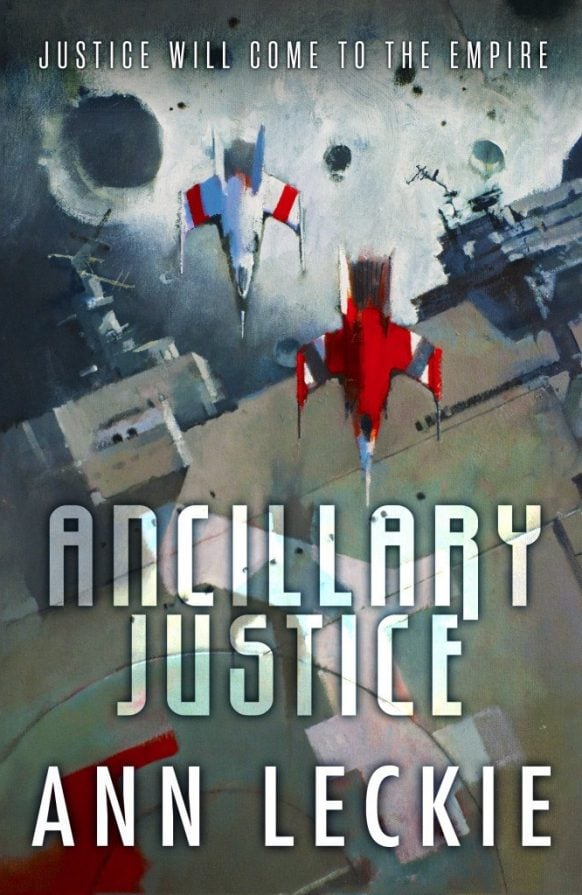Ancillary Justice by Anne Leckie (Imperial Radch, Book 1)
Ancillary Justice by Anne Leckie has definitely been the Sci Fi book of the year. Winning just about every major Science Fiction award in 2014, Leckie’s debut novel is regarded as mind-shattering.
We first meet our narrator, Breq, on an icy planet, attempting to complete a mysterious mission and reluctantly rescuing a drug-addicted Seivarden Vendaai, who had been one of Breq’s officers a long time ago, from freezing to death.
Seivarden Vendaai was no concern of mine anymore, wasn’t my responsibility. And she had never been one of my favorite officers. I had obeyed her orders, of course, and she had never abused any ancillaries, never harmed any of my segments (as the occasional officer did). I had no reason to think badly of her. On the contrary, her manners were those of an educated, well-bred person of good family. Not toward me, of course—I wasn’t a person, I was a piece of equipment, a part of the ship. But I had never particularly cared for her.
Breq wasn’t always Breq, having previously been ‘Justice of Torren One Esk Nineteen’, just one ancillary segment sharing a single consciousness with thousands of other ancillaries that form part of the Justice of Torren, a huge spaceship. Human bodied, but not regarded as human, the ancillaries each have separate perception, but form a kind of hive mind that is/operates the Justice of Torren and serves its officers. The story is narrated from Breq’s/Justice of Torren‘s veiwpoint, but at different times the “I” in the details narrated by Breq might be referring to an individual Ancillary such as One Esk Nineteen (which would become Breq) or a different segment — or the multiple-viewpoints of a group of Ancillaries or even the ship itself.
One of the novel’s signature strengths (and, conversely, frustrations) is the use of pronouns. Breq’s native language doesn’t use gendered pronouns and the Radchaai don’t really distinguish much between genders in any case, so Breq struggles to apply gendered pronouns appropriately, often making guesses about people’s gender or getting it completely wrong. For the reader, this can be disorienting. But it does allow us to let go of some of our cultural preconceptions about ourselves and others — and also, perhaps, to question why exactly gendering people is so important to us?
Through flashbacks, we find out that the mission of the Radchaai is to bring civilization to humanity. The word ‘radchaai’ itself means civilization, implying that anyone who isn’t Radchaai isn’t civilized. Constantly expanding, their empire annexed countless planets. Justice of Torrens and its officers have been stationed on a backwater planet, with the task of subduing the natives — but all is not as it seems, and perhaps only the ancillaries can perceive the truth. We begin to discover why Seivarden Vendaai is so important to Breq, what caused the destruction of the Justice of Torrens, why Breq is on a mission of revenge and the horrifying method for creating ancillaries.
The sequel, Ancillary Sword, continues Breq’s story. While it could easily have been a disappointment following the first book’s success, Ancillary Sword lives up to expectations.
Ancillary Justice is one of my favourite books at the moment, but it’s very definitely not for SciFi beginners or the faint of heart.
Melanie Ryan
Program & Communications Manager


